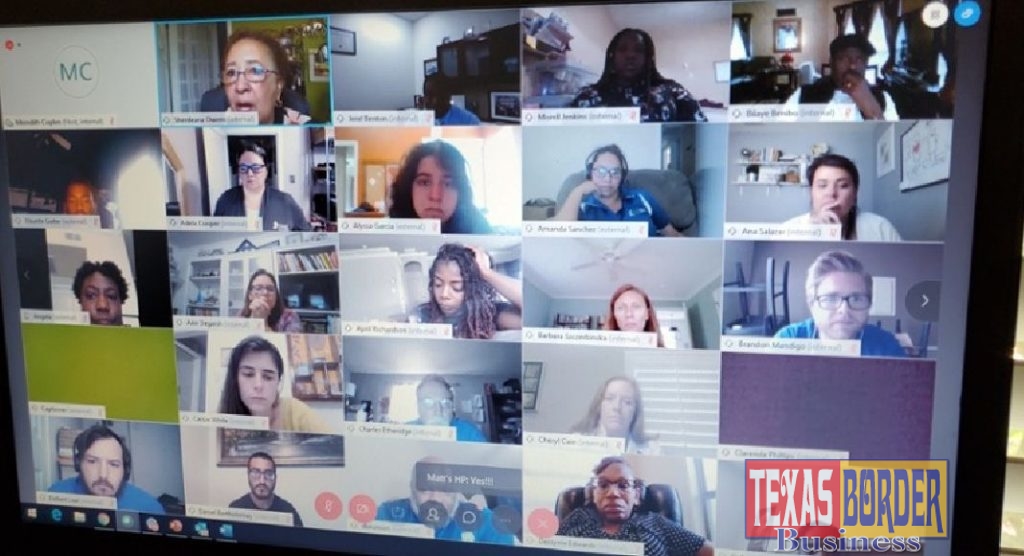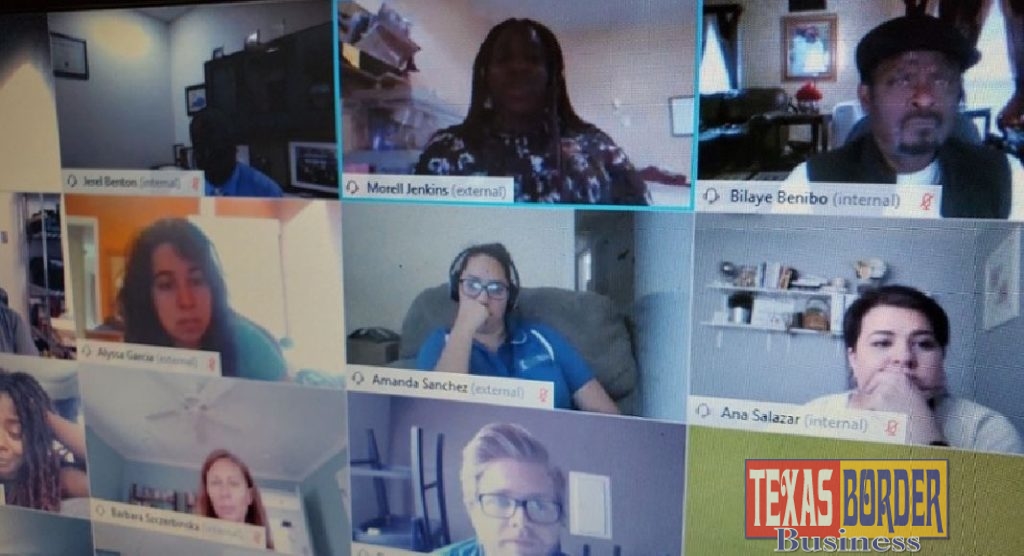
Texas Border Business
CORPUS CHRISTI, Texas – Remaining steadfast in its commitment to diversity, equity, and inclusion, Texas A&M University-Corpus Christi students, faculty, staff, and administrators joined together to host a virtual forum to engage in dialogue about patterns of violence and systemic racism found in the recent deaths of George Floyd, Breonna Taylor, and Ahmaud Arbery. The forum, titled “Be the Change: A TAMU-CC Conversation on Addressing Systemic Racism,” addressed the realities of racism and the ways Islanders can strive to create a more equitable and just society.
The June 4 forum, hosted by Student Engagement and Success (SEAS), included a cross-section of Islanders, including Dr. Bilaye Benibo, Professor of Sociology; Daunte Gaiter, marine biology major; Mo Jenkins, master of public administration candidate; Dr. Sherdeana Owens, College of Nursing and Health Sciences Assistant Professor and Health Science Coordinator; and Angela Walker, SEAS Associate Dean of Students. Dr. Jerel Benton, Special Assistant to the Provost, acted as moderator and University President/CEO Dr. Kelly M. Miller gave opening and closing remarks.
“This past week is nothing like we have seen before in recent history. There is a cry for foundational and fundamental change in our nation, not just in policing, but in every aspect of this society,” Benton said. “Today we come together to hear the experiences of our fellow Islander panelists and have a conversation about the impact of systemic racism and share thoughts and ideas of how TAMU-CC can do its part in contributing to the dismantling of systems and continue the work of having campus climate that is inclusive and welcoming.”
With nearly 300 Islanders logged on and listening, the forum provided support and personal accounts of struggle and strife, and tackled issues including the difference between systemic racism and systematic racism, the strengths and weaknesses of the “Black Lives Matter” title for the movement towards racial justice, and how allies that are not people of color can be more effective, supportive, and involved.
“As a black man living in America, or should I say ‘trying’ to live in America, a father of two black sons, grandfather to two black sons – this moment is very frightening for me,” said Benibo, “It is when you go into the supermarket and know you are being followed, it is when you are driving and you are constantly worrying about being stopped for reasons that are very trivial – this is the totality of the life experiences of being Black in the United States, this is the culmination of that.”
While the forum offered a safe place for members of the Islander community to address the important issues facing the nation today, each panelist echoed one sentiment throughout the discussion – the conversation that started on this day, must be continued.

“Some people want to ignore the hard conversations because they just want things to go back to normal, but we can’t let that happen because what’s happening is not normal, and it is not acceptable,” said Owens. “We have almost 300 people on this call, and those are 300 people have to keep this conversation going, not for a couple of weeks, or a couple of months. This is a permanent conversation.”
Some of the most emotional moments of the forum came from the Islander students who volunteered to participate.
“Myself being a part of the LGBT community, not hearing people say the name of Tony McDade, a transgender man in Florida who was also killed by police officers, makes it feel as if we only want to focus on one – and that hurts me a little bit more,” said Jenkins. “Seeing those videos, I think ‘what if that was me, what if that was one of my fellow Islanders?’ It’s scary to see it keep happening and to know my grandmother and my great aunt were fighting for their own civil rights, and to this day, they’re still having to watch this happen again.”
Echoing Jenkins’ sentiment, Gaiter revealed the worry that while achieving a higher education can help further his life, because of systemic racism – it won’t protect him.
“It feels like it’s a reminder that it can always be you, when I see George Floyd, I see me; when I see Eric Garner, I see me; when I see Michael Brown, I see me,” said Gaiter. “It’s a reminder that no matter how high an education I earn, no matter how many books I read, it can always fall back to me because of hatred, and even sometimes, confused hatred.”
University administrators are currently in the middle of a strategic planning period, and are working to develop a plan that continues the Island University’s mission to provide opportunities constructed in diversity, equity, and inclusion for all students, faculty, and staff.
“We’re talking about racism in all forms – education, healthcare, justice system, in the financial system,” said Walker. “It should not be only Black Americans to hold these companies and organization accountable; our White, Hispanic and other brothers and sisters have to stand with us too and say, ‘that’s enough.’”














